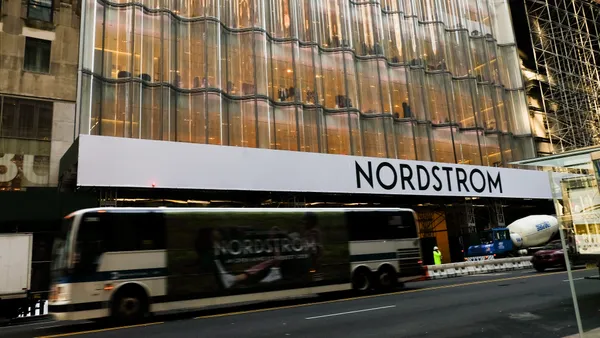Dive Brief:
-
In a move previously floated in January, Brookfield Property Partners is set to go private or "de-REIT," with an agreement in hand to be fully acquired by Brookfield Asset Management for $6.5 billion. Brookfield investors can opt to receive cash, shares of Brookfield Asset Management or shares in Brookfield Property.
-
Brookfield Property Partners' independent directors have unanimously approved the deal, per a Thursday press release. If shareholders and the Ontario Superior Court of Justice also approve, and if other customary closing conditions are met, the deal is expected to close in the third quarter.
-
Once that closes, Simon Property Group would be the lone mall REIT that, at the moment, would benefit from tax changes being considered in Congress.
Dive Insight:
This move by Brookfield comes as no surprise, not least because the company made its intentions clear earlier this year.
Specifically, the mall landlord may have been hemmed in by the web of financial requirements unique to publicly traded real estate investment trusts or REITs. Those rules are designed to ensure that mom and pop investors can partake of commercial real estate investments, though the stiff limitations are sweetened with massive tax exemptions.
Because so much of a REIT's funds must accrue to its shareholders, it can be difficult to find enough capital to fund the type of renovation that is sorely needed at many malls, according to Nick Egelanian, president of retail real estate development firm SiteWorks. Even the better malls run by Brookfield and Simon Property Group are suffering from traffic declines that have been exacerbated by the pandemic, according to recent research from S&P Global Market Intelligence.
Several experts believe that most malls need a more diverse mix of tenants and, especially at enclosed malls, a design overhaul. Egelanian says his research shows that even A malls have 25% to 35% too much space.
The agreement announced last week "allows for greater optionality in how we manage our portfolio of high-quality real estate assets," Nick Goodman, CFO of Brookfield Asset Management, said in a statement.
The tax benefits also make this a tricky decision. Simon Property Group CEO David Simon in the past has said that while that company regularly contemplates de-REITing, the tax implications are too great. Both Simon and Brookfield have publicly endorsed tax changes that would allow them more flexibility to own their own tenants, while maintaining the REIT's lucrative tax benefits. Those changes theoretically apply to any REIT, although at the moment would apply only to Simon and Brookfield, the only U.S. mall REITs with significant stakes in their own retail tenants.
"I am wondering how Brookfield is getting around the cost of de-REITing. As far as Simon, they are the only U.S. REIT that has heavily invested in retailers," Egelanian said by email. "David Simon will twist and turn every lever available to him to give his company an advantage. Regardless, he cannot stop the inevitable, with many of their secondary malls collapsing and other trophy assets still needing billions of new investment, creative re-anchoring and re-merchandising to deal with fundamental changes in the department store, fashion, entertainment and dining sectors."
Brookfield Property Partners didn't immediately return requests for comment on whether they continue to favor the proposed tax changes, despite the fact that their deal to be acquired and de-REIT would essentially render them moot. Congressman Brad Schneider (D-Illinois), the principal sponsor of the legislation, didn't immediately return a request for comment about whether consideration of the bill might change now that it will likely soon apply only to one mall REIT, namely Simon Property Group.













